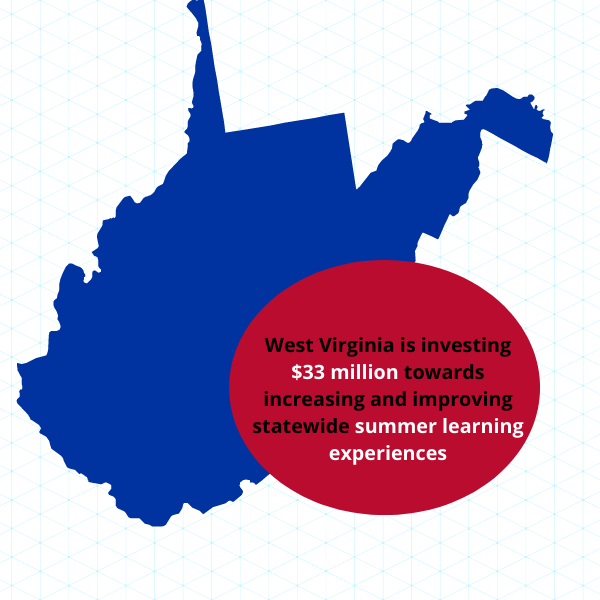West Virginia is using $33 million from its ESSER II state set-aside funds to offer Summer Student Opportunities for Learning and Engagement (Summer SOLE) grants to districts across the state. District grants will fund programs that offer summer learning experiences, with the goal of addressing students’ social-emotional and academic needs. District recipients must provide in-person summer programs that last for at least four weeks with programming on at least four days per week. Grant funding is also used to provide free transportation and meals. It is noteworthy that the state education agency also hired an extended learning coordinator to provide weekly virtual technical assistance meetings for school district grant contacts and to coordinate monitoring and data collection.
We are spotlighting this practice because it is focused on extending learning opportunities in the summer to help address pandemic-related learning loss. By offering free transportation and meals, the program can support students who otherwise could not participate.








